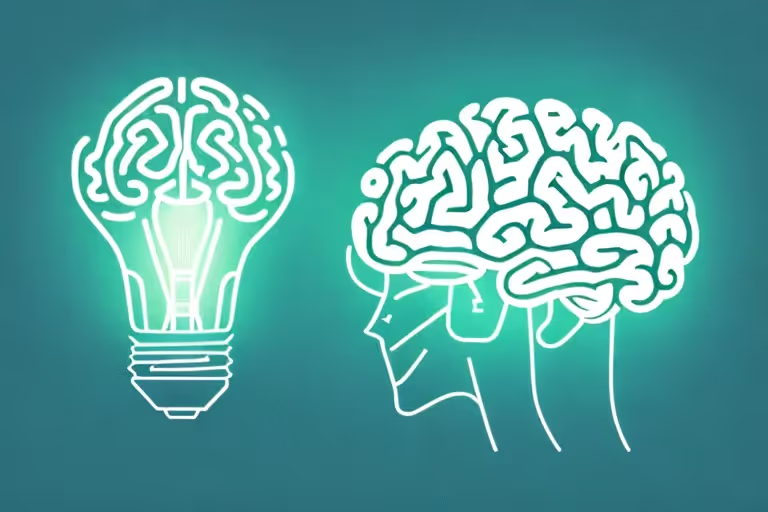Meditation is a practice that has been around for thousands of years, and it comes in various forms. One popular type of meditation is Vipassana, which originated in ancient India. While Vipassana shares some similarities with other meditation practices, it also has its own unique characteristics that set it apart. In this article, we will explore the basics of meditation, delve into the origins and core principles of Vipassana, discuss other popular meditation practices, highlight the key differences between Vipassana and these practices, and guide you in choosing the right meditation practice for you.
Understanding the Basics of Meditation
Before we dive into Vipassana meditation, it's important to understand the fundamental aspects of meditation itself. Meditation can be defined as a practice that involves training the mind to focus and redirect thoughts. It is often done by sitting in a comfortable position, closing the eyes, and focusing attention on a specific object, such as the breath or a mantra.
But what exactly happens during meditation? When we sit in stillness and silence, we create a space for self-reflection and inner exploration. We become observers of our own thoughts, emotions, and sensations, without getting caught up in them. This process allows us to develop a greater sense of self-awareness and a deeper understanding of our own minds.
As we practice meditation regularly, we begin to notice that our thoughts are like passing clouds in the sky. They come and go, sometimes fast and sometimes slow, but they are not permanent. We learn to let go of the need to control or suppress our thoughts, and instead, we cultivate a sense of acceptance and non-judgment.
Defining Meditation
Meditation is not about clearing the mind of all thoughts or achieving a state of complete emptiness. Instead, it is about observing thoughts as they arise and letting them pass without judgment or attachment. Through regular practice, meditation can help cultivate mindfulness, reduce stress, improve concentration, and promote overall well-being.
When we meditate, we create a space for stillness amidst the chaos of our daily lives. It is a time when we can disconnect from the external world and reconnect with our inner selves. By focusing our attention on the present moment, we become more aware of our thoughts, emotions, and bodily sensations.
Through this heightened awareness, we can begin to understand the patterns and habits of our minds. We may notice recurring thoughts or emotions that arise in certain situations. With this understanding, we can choose how to respond to these thoughts and emotions, rather than reacting automatically.
The Purpose and Benefits of Meditation
The ultimate goal of meditation is to achieve a deeper understanding of oneself and the nature of reality. Research has shown that regular meditation can have numerous benefits, both physical and mental. It has been found to reduce anxiety, lower blood pressure, improve sleep, enhance self-awareness, boost creativity, and increase feelings of happiness and contentment.
When we meditate, we create a space for self-care and self-exploration. It is a time when we can let go of the external pressures and demands of our lives, and focus on nurturing our inner selves. Through this practice, we can cultivate a sense of peace, balance, and well-being.
Moreover, meditation can also have a positive impact on our relationships with others. As we become more self-aware and mindful, we are better able to empathize with others and communicate effectively. This can lead to more harmonious and fulfilling relationships, both at home and in the workplace.
In conclusion, meditation is a powerful tool for personal growth and transformation. It allows us to tap into our inner wisdom and find a sense of peace and clarity amidst the chaos of life. Whether you are a beginner or an experienced meditator, incorporating regular meditation into your routine can have profound and lasting effects on your overall well-being.
An Introduction to Vipassana Meditation
Vipassana, which means "insight" or "clear seeing" in Pali, is a meditation technique that was rediscovered by the Buddha more than 2,500 years ago. It is often described as a practice of self-exploration and self-transformation.
The Origins of Vipassana
Vipassana has its roots in the ancient Buddhist tradition and is believed to be the meditation technique taught by the Buddha himself. It was later lost to the world but was reintroduced by the Indian teacher S.N. Goenka in the 20th century.
Core Principles of Vipassana
Vipassana meditation involves cultivating mindfulness and developing insight into the nature of reality. Practitioners are encouraged to observe their physical sensations, thoughts, and emotions with a non-judgmental and equanimous attitude. The practice aims to purify the mind and liberate oneself from suffering by gaining insights into the impermanent and interdependent nature of all phenomena.
Other Popular Meditation Practices
While Vipassana is a powerful meditation technique, it is important to acknowledge that there are other popular practices out there as well. Let's take a brief look at some of them:
Mindfulness Meditation
Mindfulness meditation is a form of meditation that involves paying attention to the present moment, non-judgmentally and with an attitude of acceptance. It is often practiced by focusing on the breath or bodily sensations and observing one's thoughts and emotions as they come and go.
Transcendental Meditation
Transcendental meditation is a technique that involves silently repeating a mantra, which is a specific word or phrase, with the goal of transcending ordinary consciousness and accessing a state of pure awareness. It is typically practiced for 20 minutes twice a day.
Zen Meditation
Zen meditation, also known as Zazen, is a practice that originated in Zen Buddhism. It involves sitting in a cross-legged position, keeping the back straight, and focusing on the breath or a koan (a paradoxical question) to cultivate awareness and presence.
Key Differences Between Vipassana and Other Practices
While Vipassana shares some similarities with other meditation practices, there are key differences that make it unique. Let's explore these differences:
Differences in Techniques
Vipassana primarily focuses on observing physical sensations, thoughts, and emotions, while other practices may emphasize different techniques, such as focusing on the breath, repeating a mantra, or contemplating a specific image.
Differences in Objectives and Outcomes
While the ultimate goal of all meditation practices is to cultivate inner peace and wisdom, the specific objectives and outcomes may vary. Vipassana aims to gain insights into the impermanent and interdependent nature of reality, whereas other practices may focus on relaxation, stress reduction, or spiritual enlightenment.
Choosing the Right Meditation Practice for You
When it comes to choosing a meditation practice, it's important to consider your personal preferences, needs, and goals. Here are some factors to consider:
Factors to Consider
Reflect on what you hope to gain from meditation. Are you looking for stress relief, spiritual growth, or mental clarity? Consider the time you can commit to daily practice, as different techniques may require different time commitments. Additionally, explore different practices and see which ones resonate with you on a deeper level.
Personalizing Your Meditation Journey
Remember, there is no one-size-fits-all approach to meditation. It's a deeply personal journey, and what works for one person may not work for another. It may take some trial and error to find the practice that feels right for you. The Aura Health App offers a wide range of guided meditations, including Vipassana, mindfulness, and other popular techniques, to support you in your meditation journey.
Conclusion
In conclusion, while Vipassana is just one type of meditation practice, it offers a unique approach to self-exploration and self-transformation. By cultivating mindfulness and gaining insights into the impermanent nature of reality, Vipassana can bring profound changes to our lives. However, it's essential to recognize that different practices have different techniques, objectives, and outcomes. By considering your personal needs and goals, you can find the meditation practice that resonates with you and supports your well-being. Start your meditation journey with the Aura Health App and explore the various practices it offers to discover the path that suits you best.
Aura is Your All In One App for Meditation, Mindfulness Wellbeing
Find peace every day with one app for your whole well-being. There is no one-size-fits-all solution to mental well-being. Aura is the first all-in-one wellness app that learns how to best help you. Discover an endless library of expert-created tracks for your well-being, all taught by the world’s best coaches, therapists, and storytellers. With Aura's personalized recommendations, you can find peace every morning, day and night.



.webp)






.avif)

%20(1).avif)


.avif)
.avif)
.webp)


.avif)


















































































































.avif)

















.svg)








